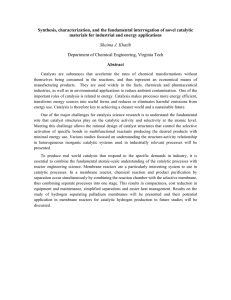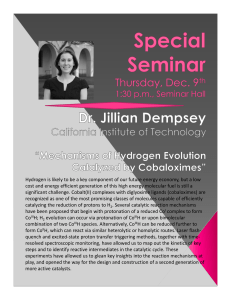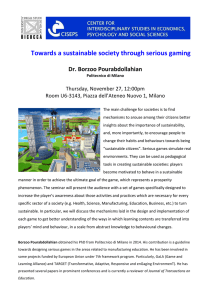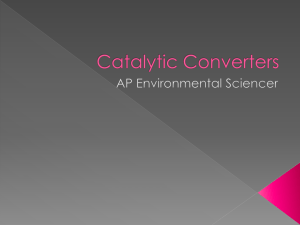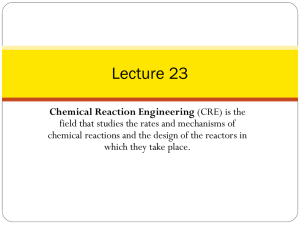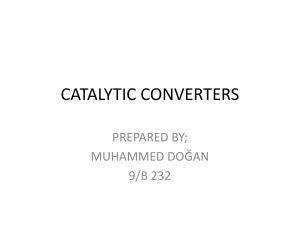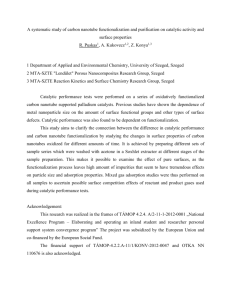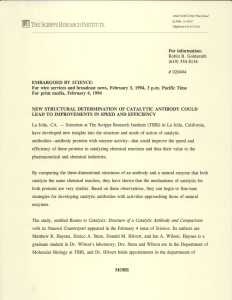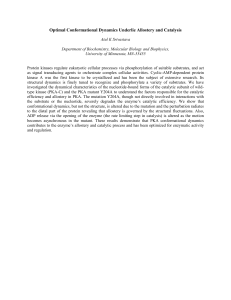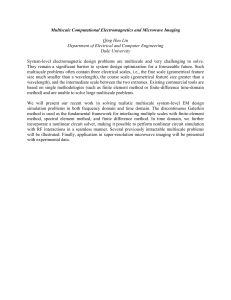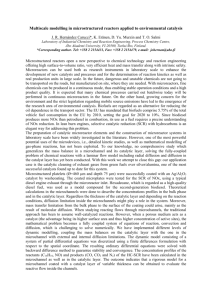A first-principles approach to system complexity in heterogeneous
advertisement
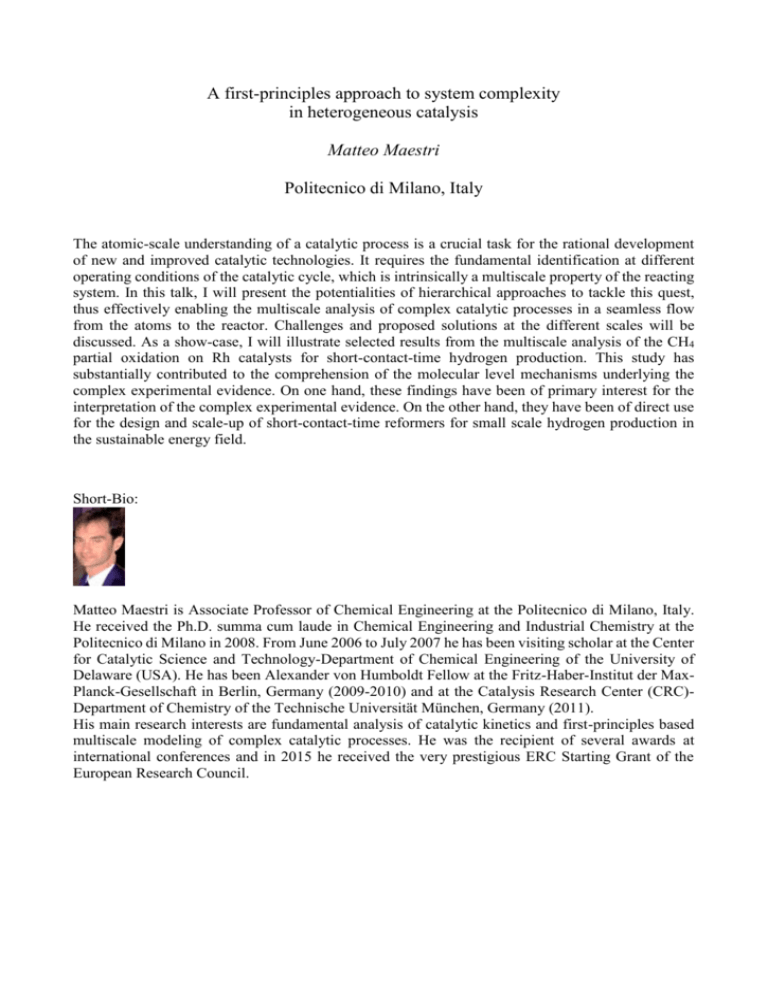
A first-principles approach to system complexity in heterogeneous catalysis Matteo Maestri Politecnico di Milano, Italy The atomic-scale understanding of a catalytic process is a crucial task for the rational development of new and improved catalytic technologies. It requires the fundamental identification at different operating conditions of the catalytic cycle, which is intrinsically a multiscale property of the reacting system. In this talk, I will present the potentialities of hierarchical approaches to tackle this quest, thus effectively enabling the multiscale analysis of complex catalytic processes in a seamless flow from the atoms to the reactor. Challenges and proposed solutions at the different scales will be discussed. As a show-case, I will illustrate selected results from the multiscale analysis of the CH4 partial oxidation on Rh catalysts for short-contact-time hydrogen production. This study has substantially contributed to the comprehension of the molecular level mechanisms underlying the complex experimental evidence. On one hand, these findings have been of primary interest for the interpretation of the complex experimental evidence. On the other hand, they have been of direct use for the design and scale-up of short-contact-time reformers for small scale hydrogen production in the sustainable energy field. Short-Bio: Matteo Maestri is Associate Professor of Chemical Engineering at the Politecnico di Milano, Italy. He received the Ph.D. summa cum laude in Chemical Engineering and Industrial Chemistry at the Politecnico di Milano in 2008. From June 2006 to July 2007 he has been visiting scholar at the Center for Catalytic Science and Technology-Department of Chemical Engineering of the University of Delaware (USA). He has been Alexander von Humboldt Fellow at the Fritz-Haber-Institut der MaxPlanck-Gesellschaft in Berlin, Germany (2009-2010) and at the Catalysis Research Center (CRC)Department of Chemistry of the Technische Universität München, Germany (2011). His main research interests are fundamental analysis of catalytic kinetics and first-principles based multiscale modeling of complex catalytic processes. He was the recipient of several awards at international conferences and in 2015 he received the very prestigious ERC Starting Grant of the European Research Council.
